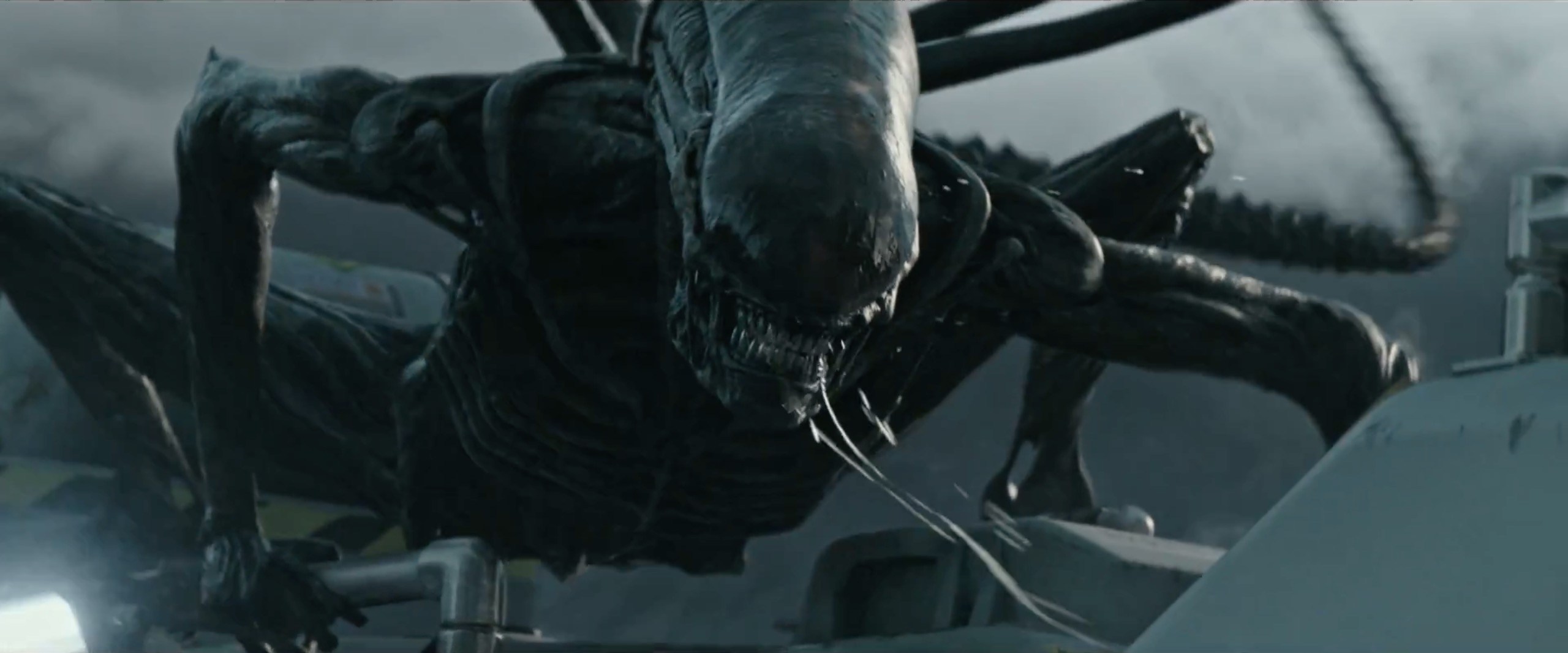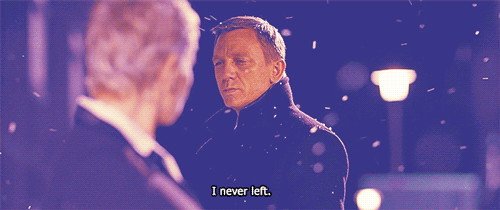T2 TRAINSPOTTING Danny Boyle, 2017 
A former heroin addict returns to his hometown after twenty years and soon becomes embroiled in the lives of his old friends.
Generally speaking, a belated sequel is not the best idea. As if trying to replicate or build upon the success (or at least correct the flaws) isn't enough of a challenge for a typically immediate follow-up, the passage of time and all that entails only serve as additional obstacles that would work against the success of a given continuation. The ideal manner of compensating for a prolonged period between sequels is to incorporate the passage of time into the narrative and thematic developments of the film itself. This much is very true of
T2 Trainspotting, the long-gestating cinematic follow-up to Danny Boyle's 1996 break-through hit
Trainspotting. Original
Trainspotting author Irvine Welsh had already written his own sequel with the 2002 novel
Porno, which took place a full decade after its predecessor and saw the low-life protagonists still struggling to keep ahead of demons that had definitely not improved with age; due to extenuating circumstances, Boyle's own loose adaptation of this particular sequel has increased the gap to two decades. The fact that this also marks the first ever sequel in the Oscar-winning director's lengthy and versatile filmography is certainly enough to make it stand out, though I still had my doubts considering how I felt about the bulk of his varied output that did not mix very well with my established concerns about belated sequels.
T2 understands that its viewers are almost certainly going to be familiar with
Trainspotting as it takes its time to recount the first film's most pertinent plot details - most prominently, that of Mark (Ewan McGregor) ripping off his mates by stealing their combined profits from a lucrative drug deal in order to start a new life far away from their toxic influence. Before doing that,
T2 opts to re-establish the core quartet and their positions within the current social landscape. The story proper begins with Mark returning to his hometown of Leith following a health scare. Though he only plans to stay in town for a couple of days, he soon ends up reconnecting with his oldest friends and former victims - lifelong junkie Spud (Ewen Bremner) and small-time scam artist Simon (Jonny Lee Miller). While Spud is more or less amenable to Mark's return, Simon immediately plans to get revenge for Mark taking his share of the drug money; this just so happens to coincide with Simon wanting to turn his dingy pub into a high-end brothel. Meanwhile, career criminal Begbie (Robert Carlyle), who has spent the entire duration between films in prison for one senseless crime too many, has launched a plan to get out and resume his former activities; this naturally puts him on an inevitable collision course with Mark, against whom he's built up twenty years' worth of murderous rage. If the loosely-structured slice-of-life plot of the original reflected the directionless youth of its characters, then this one adds more structure and with it a sense of inevitability to the ageing characters' journeys (whether they realise it or not).
Much like Mark,
T2 takes a while to reacquaint itself within this particular milieu but soon establishes some arcs for each of its main characters that all reflect the ways in which they are trying to cope with middle age. Mark's humbled return to his old world means that he no longer gets to be the out-and-out protagonist whose journey we follow from beginning to end; instead, he effectively ends up on equal footing with the other three as he intersects with their own plots instead of really having one of his own. Simon's plan to renovate his business by any means necessary proves to be the main driving force of the film and certainly makes the most sensible choice in terms of both narrative and theme; it's a plan for the future that's still very much stuck in the past. Spud's arc is similarly focused on the old days, though his plot is more about trying to break the vicious cycle of addiction and victimhood that he's been trapped in all his life. Begbie, on the other hand...he just wants to return to the same destructive way of life, even trying to rope his very reluctant teenage son into the proceedings. The film's treatment of nostalgia and how we view the past varies enough between scenes so as to not form into a cogent whole, though it is all the better for leaning towards the critical side of things (as best exemplified by a standout sequence involving a clubhouse of historically-obsessed punters). Having Simon's much younger associate Veronika (Anjela Nedyalkova) serve as a younger-but-wiser chorus to the proceedings (much like Kelly MacDonald's Diane did in the first film) is a bold move that doesn't totally pay off but definitely doesn't feel unnecessary either, further demonstrating how fundamentally at odds with itself the film tends to be.
If we are to note how different both the characters and the world of
Trainspotting have become after twenty years, then it's also worth noting how much (or how little) the director has changed in time. Boyle's definitely been about experimenting with aesthetic and form since the beginning of his career; much like Ridley Scott, he's become a director who has a very specific idea of how he wants his films to look. However, in comparing Boyle to Scott I note a more unfortunate similarity that these two filmmakers share - that their focus on getting a film's visual element just right can throw the overall quality of said film into uncomfortably sharp relief. If you're familiar with Boyle's work, you can recognise the same technical trademarks that have peppered his 21st-century output. Off-centre Dutch angles, high-contrast colouring, eye-catching editing...it's all here. Considering how many of his films deal with altered states of mind or being, it has been a bit of an issue that his films have all started to look the same in a way that suggests an empty one-size-fits-all aesthetic more so than distinct variations upon a common theme. This even ends up overshadowing the moments where
T2 attempts to recreate the original's capacity for fantasy sequences where characters readily visualise dreams and triumphs or nightmares and failures. At least the sound work yields some remarkably off-kilter results, especially through the decision to chop and screw many of the old hits into staccato bursts of noise.
I still wonder exactly how fair it is to judge a sequel by comparing it against its source instead of judging it as a standalone piece of work, though in the case of
T2 Trainspotting it is practically a necessity. People who haven't seen the original may still get something out of this particular melding of midlife-crisis dramedy with low-rent crime capers, but I can't imagine what. It is very much one for the fans as it packs in as many references to the original film (and even the books) as possible while also providing a relatively original plot that'll keep the readers guessing. Of course, all the fanservice and nostalgia can only mean so much if the film isn't actually trying to say something underneath it all. In making
T2, is Boyle drawing a parallel (intentionally or not) between himself and the decidedly shiftless Mark? Both men return to familiar ground after two decades away and reveal how much they've changed or stayed the same; the difference lies in whether Boyle is driven by the same sense of obligation that drives Mark. Considering how long the film spent in development hell, is its eventual realisation a demonstration of commendable perseverance on Boyle's part or just the result of his bloody-minded refusal to let sleeping dogs lie? Given the inconsistency of the subtext and its effect on the extremely flashy textual level, it's still a little too close to call. Still, the fact that it avoids being a complete embarrassment and has its fair share of moments that could contend for the best in Boyle's career is enough to make it one of the worthier belated sequels in existence - all things considered, it's not a bad thing to choose.









